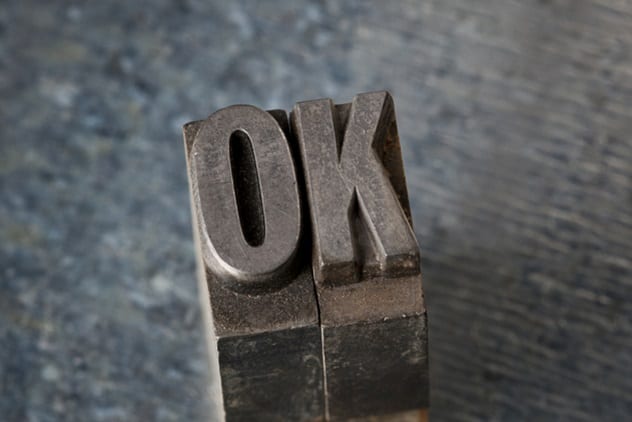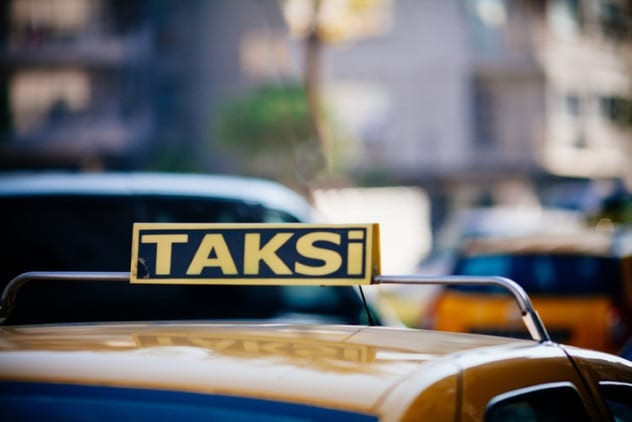Maybe there’s just something intrinsically human about the sound of these words. In other cases, certain foodstuffs just managed to retain their tags as they moved from culture to culture. Whatever the reason, here are just a few words in different languages that have managed to stay connected.
10 ‘Pajamas’
A Hindi and Urdu word, pajama, referred to loose pants tied around the waist, a popular fashion in India. After colonization, the British took the clothing home, and over time, the style and word grew far beyond the subcontinent.[1] What is particularly notable is how far it has gotten (and in such a short time). In almost any language you could name, you can find a derivative of pajama. Whether it is bijama in Arabic or pizsama in Hungarian. The word “pajama” even appears in languages like Basque and Irish. Add to that the fact that many of these languages must have previously had some term for sleepwear. It was by no means a new concept. Even though previous terms may have been simple compound words (such as “nightgown” in English), they were still doing a pretty sufficient job. For so many languages to incorporate this new term and use it widely is incredibly unusual. Imagine if kilts suddenly became highly fashionable, and within less than a century, every language was using “kilt” as a word for skirts. You would accept it because that would be awesome, and you would be dead, but it would be strange nonetheless. Similarly, “pajamas” is a great word, and fun to say, but the takeover is pretty hard to explain.
9 ‘OK’
Often cited as one of the most well-known words in the world, “OK” is doing pretty okay for itself. A common story behind the creation of “OK” was that 1830s newspapers in the US went mad for abbreviations. “OK” came about as a joke. The abbreviation “OK” was used to mean “orl korrekt,” an intentional misspelling of “all correct”[2] which was presumably hysterical in the 1830s. Okay, well, there are other theories. Some claim it is a corruption of aux Cayes, French for “from Cayes,” referring to a Haitian port with good rum. Or maybe it’s from the Greek ola kala, meaning “it is good” or “all good,” or even derived from the Scots phrase “och aye.” Whatever its origin, the word has quickly spread to be used and understood in almost every country to mean that everything is alright. There are several theories behind “OK’s” easy travel. One is aesthetics; the curved “O” and straight-lined “K” side by side is distinctive. Another is that the sounds “oh,” “k,” and “ay” exist in most languages. First mentioned in the Slang Dictionary of Vulgar Words, “OK” hasn’t really been accepted into formal speech (though it is recognized by several dictionaries). However, it has found worldwide fame and has become an indispensable go-to word for average situations.
8 ‘Taxi’
“Taxi” is another relatively recent word that has been incorporated into many languages. From the term “taximeter cab” (“tax” from the Medieval Latin taxa for “tax” or “charge”), the shortened word “taxi” has become commonplace all over the world. Though it changes language to language, the sound is almost always “tak-see” or very close.[3] It may simply be that it is a short and easy word that describes a more complicated idea. In Japan, taxis were bureaucratically referred to as ippan jokyaku ryokaku jidosha (“motor vehicle for general passengers and travelers”). Saving much ink, the word takushii became commonplace from the start. It may have been a word simply popularized elsewhere by tourism. However, with the US, Europe, and Japan all essentially using the word “taxi,” most countries were importing their vehicles from a country that used the word. British cars were sent to India, and brands like Toyota and Ford became commonly used as taxis around the world, making traveling one word easier for tourists everywhere.
7 ‘Mama’
The word “mama” is the same in a startlingly high number of languages, or at least very similar, such as eomma in Korean or mami in Czech. (Equivalent words for fathers are also similar but vary more widely.) This consistent term for “mother” may lure you into thinking that this word was so strong, so integral, that it survived from early humanity and spread throughout the world. The real story is even stranger. It independently arose in many different languages. How could this happen? Research suggests it has everything to do with early speech development. A baby’s babbling is not a series of random noises and follows a pattern. In vocal experimentation, babies often arrive at the “ah” sound first. It is the easiest sound to make, as you do not have to do anything with your mouth to make it. Closing our lips to create an “mmm” also comes quite naturally. Think of how often you still do. Mm-hmm? These sounds combined create a common first word: “mama.” The primary caregiver feels that she is being addressed. The situation plays out all over the world.[4] The same sounds, the same interpretation, the same word. And so, whenever you want to call out for your mama, wherever you are in the world, people will know what’s up.
6 ‘Haha’
“Haha” is our go-to sound for describing laughter. It has been that way since we first started writing it down—all the way back to Chaucer. Other onomatopoeic variations, such as “hehe,” “hee-hee,” or “ho-ho,” just cannot compete. And, looking at the way that other cultures write out laughter at a keyboard, it appears that this is mirrored across much of the world.[5] Each language, of course, has different ways of expressing and typing this “haha” sound. For instance, Spanish will be “jaja.” In Thailand, the number 5 is pronounced “ha,” so they will often express laughter on the keyboard by typing “55555!” This common “haha” makes for an easy concept to translate in case you want to be dryly sarcastic in other languages. If you would like to express genuine mirth, then you can, of course, just laugh.
5 ‘Guitar’
The word “guitar” is complicated to trace, as it has applied to different stringed instruments throughout history. It wasn’t until the 19th century that a six-stringed instrument closely resembling the versatile and commonplace guitar we know today was developed. This modern guitar was derived from Spain and a medieval instrument known as a guitarra latina. Much of Europe takes the word from this. However, going back further, the Spanish word has roots in Greek word kithara and Arabic gitara. However, both the word and instrument go much further back than this. Tar is a Hindi word for “string,” derived from more ancient Persian and Sanskrit. Tar is seen in many other instrument names, such as the tar and sitar. This long evolution crisscrossing continents created a common word for the instrument across many cultures, and eventually, it integrated into a vast array of languages. Incredibly, at the end of the process, we (almost) all still describe a Fender with the same “gee-ta” sound.[6]
4 Cha
China exported tea, both the product and the word, around the world. Actually, they exported two different words. “Tea” was pronounced cha in most dialects across China, and this pronunciation was spread via the Silk Road into Persian and then Urdu, Arabic, Russian, and eventually as far as East African languages such as Swahili. However, a particular dialect pronouncing cha as “te” just so happened to be spoken at two major ports for Dutch trade: the coastal province of Fujian and the island of Taiwan. From Dutch, the word spread into Europe as well as the west coast of Africa and influenced a large number of languages from that point.[7] There are languages that use neither word. Unsurprisingly, they tend to be countries where tea grows naturally. However, you’ll find the Chinese terms in almost 200 different languages. Cha derivatives are more common, however, and often a name for a type of tea in languages that don’t use one. Chai tea, for instance, is an Indian tea now popular across much of the world. Armed with both words, you can ask for a cup of tea almost anywhere in the world.
3 Kahve
“Kof-ee,” “kahve,” “kava” . . . Make these three sounds, and you’ve come pretty close to saying “coffee” in most of the languages in the world. That is because most languages borrowed the Turkish word kahve (not to be confused with “Java,” which is a slang term from referring to Javanese coffee), which, in turn, was based on the older Arabic word qahua. And none have drifted too far from that point. In fact, English uses one of the least recognizable forms. Much of Europe changed “v” to “f” (such as the French cafe), but the Dutch also changed the “a” to an “o,” leaving languages such as English, German, and Afrikaans with the sound “kofi.”[8] All, however, are still very recognizably tied to the Turkish word. The popularity of the drink spread quickly, and the word came with it. Caffeine has remained immensely popular. Should you prefer your caffeinated drinks cold, the global dominance of Coca-Cola means you can probably request this in most places and be understood, too. Or you can just yell out the word “caffeine.” It, too, has hardly changed across languages. Although perhaps it’s better to stick with asking for a drink; people simply yelling out “caffeine” in public spaces may not get the fine cup of coffee they desire.
2 ‘Huh’
A 2013 study lauded “huh” as the most universal word in the world. Despite this, the word is not the same across languages. . . . Huh? The thing is that while it doesn’t sound exactly the same, there are an incredibly narrow set of parameters that it adheres to. The equivalent words are always monosyllabic, have a questioning intonation, and all have similar vowel and consonant sounds and formation. This may not sound incredible, but a word with these rules is an exceptional discovery. Imagine finding that “dog” or “chair” had an innate form replicated independently across the majority of languages. And though many might not think of “huh” as a word, it is, with a place in the dictionaries and everything. Specifically, it is a sound that needs to be learned and not one we naturally produce. (Bizarrely, so is most of the noise we make when we sneeze. So, if you have an explosive sneeze, you are the only one to blame.) This is an important point, as otherwise, “huh” would simply be another naturally occurring sound, such as a grunt or cry. The study suggested that these similarities exist since “huh” has such a unique function. It has to be easily slid into a conversation without disrupting the initial speaker too greatly. As each language evolved, they all independently found that this type of sound best suited the job.[9] With this level of similarity, it is a word that can transcend language barriers. It’s helpful, too, as talking to someone who doesn’t speak your language is going to lead to a whole lot of “huh?”
1 Chocolate
Chocolate is another addiction that became unbelievably popular around the world while the name remained largely unchanged.[10] The word originates in the Nahuatl word xocolatl. In Aztec culture, these cacao beans were widely consumed as a beverage called cacahuatl, a probable origin for the word “cacao.” The Spaniards coined the term “chocolate,” and the word passed from Spanish into many other European languages, including English. As with coffee, it is perhaps the speed at which new cultures picked up chocolate that kept the name from changing, with dedicated “chocolate houses” springing up in Europe in the 17th and early 18th centuries around a product that had become immediately culturally significant. Today, “chocoholic” is an actual word in actual dictionaries, so not a whole lot has changed. Reggie is a small being moving around the planet, learning new things, and writing some of them down.
























